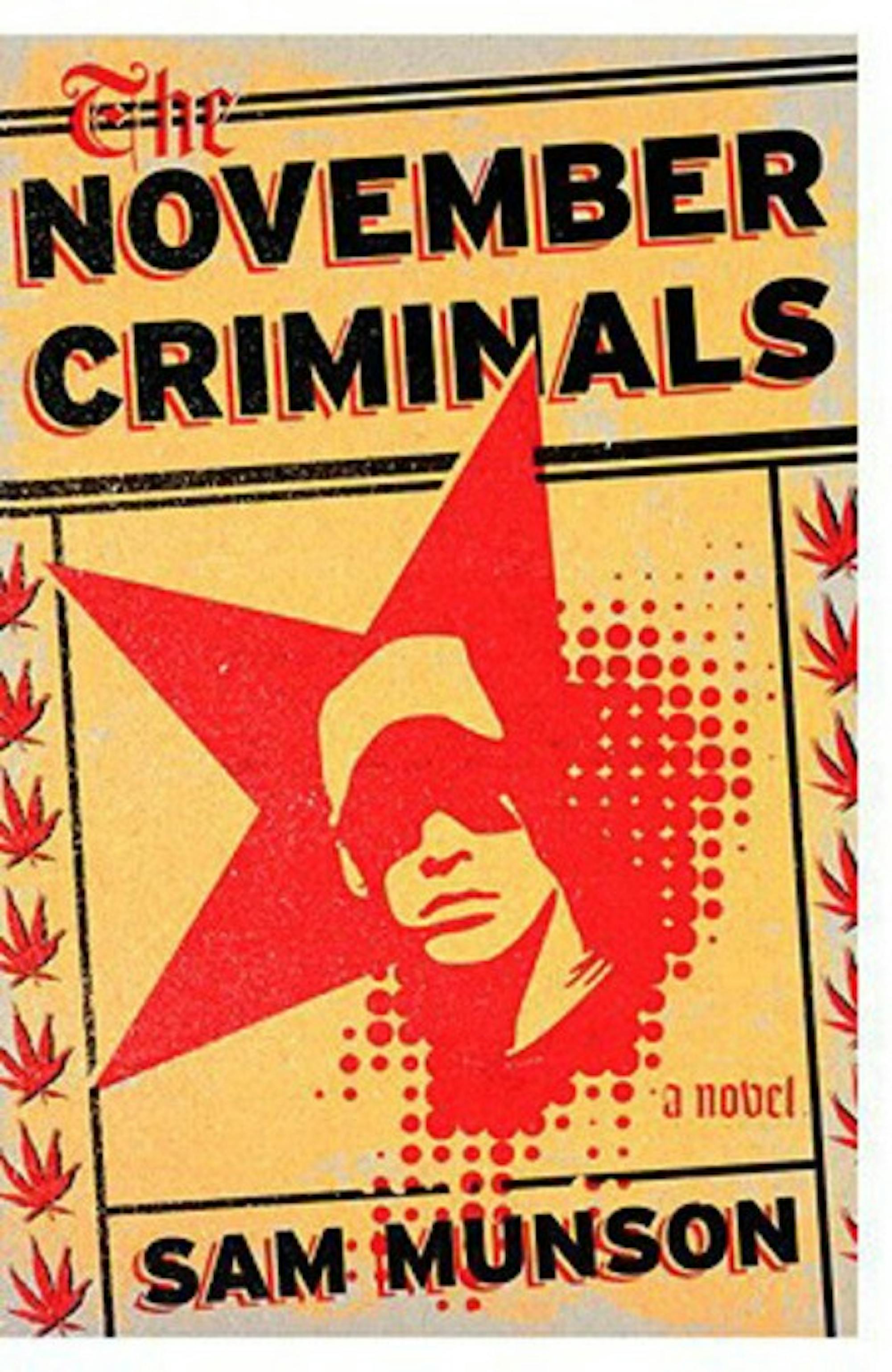Addison is not your typical high school senior at least not in most areas of the country. He attends an elite private school in Washington, D.C., where he deals marijuana to his rich classmates and sleeps with Digger, his spit-fire "hipster" non-girlfriend. "She is NOT my girlfriend," Addison says of their relationship. "I would fight you for saying so. SHE would fight you for saying so." Instead, Addison says that he "[prefers] a life of free-ranging ... concubinage." Pretentious statements like this highlight some of Addison's less endearing qualities.
Addison's atypical adolescent existence is enabled by his father a well-meaning but absent parent still coping with the loss of Addison's mother, who died when he was a child. The plot revolves around the homicide of an African-American student at Addison's prep school, as Addison becomes obsessed with finding the killer.
Despite Addison's penchant for detectivehood, however, "The November Criminals" is neither a mystery nor a thriller. Rather, it is a novel, as the book's jacket correctly claims, of "teenage maladjustment." And strangely enough, this tale comes alive primarily through Munson's use of Addison's imperfect, yet undeniably original voice.
The novel is written as Addison's 258-page response to a question on his college application for the University of Chicago: "What are your best and worst qualities?" Addison's approach to this question alone makes "The November Criminals" worthwhile reading material for high school seniors agonizing over their college essays.
Instead of writing the standard and desperate essay about saving children in Africa last summer, Addison tells it like it is and his honesty and candor are incredibly refreshing. Granted, I don't know how admissions officers would react to an essay that openly talks about "selling small-to-medium amounts of weed to safe, calm rich kids," but I do think that they would be thrilled to find Addison's truthfulness in their application folders.
In keeping with its focus on college admissions, the novel draws a great deal of inspiration from the school it depicts (Munson graduated from the University of Chicago in 2003). And just as the University of Chicago has a highly intellectual environment that would probably not appeal to the majority of America, "The November Criminals" is an intellectual book that may turn some people off. Addison, for example, is obsessed with Virgil, and makes references to his writings constantly.
During class one day, for example, Addison says quite seriously to his teacher "[Virgil] was talking about the first time Aenaes and Dido the insane queen of Carthage, remember? have sex." Even as an English major, I have never read any Virgil, and don't know this. He begins to yell at his teacher, "You can't judge Virgil. Are you planning on writing something that we'll still be reading in thousands of years? Are you? You have no right! You just don't. Okay?" Again, I thought, enough with the Virgil obsession.
While Addison's intelligence comes off as arrogant and irritating at times, at other points, it makes for great comedic writing. In one chapter in particular, when Addison and his girlfriend think they are going to find the murderer of their classmate (and instead find a pot-bellied, slow-talking teddy bear of a man), they made me laugh out loud. The book is littered with sarcastic comments that make for a fun and humorous reading experience.
I'm very picky about books that use an adolescent voice. Getting it right and avoiding using cliches it is an art a difficult one at that. If I had to give Munson a grade, I would give him a B. This adolescent's narration is better than average, but Munson still has a lot of work to do before he gets it just right.




![HONEYJOON_[Ines Gowland]_4.PNG](https://snworksceo.imgix.net/drt/7af2efc8-1bd1-4001-b754-e2718ce663b8.sized-1000x1000.PNG?w=1500&ar=16%3A9&fit=crop&crop=faces&facepad=3&auto=format)